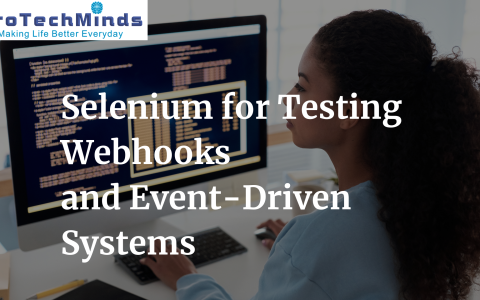
Human resources (HR) play a pivotal role in driving organizational growth and success. Effective Human Resources Project Management is essential for ensuring the seamless execution of initiatives ranging from talent acquisition and onboarding to performance management and organizational development. This comprehensive guide explores the intricacies of HR project management, offering insights, strategies, and best practices to help HR professionals navigate the challenges and opportunities of the future.
Human Resources Project Management (HRPM) is a strategic approach that combines project management principles.
HR practices to achieve organizational goals related to talent management, workforce planning, and employee development.
In today’s dynamic business environment, HRPM plays a crucial role in ensuring that HR initiatives are effectively planned, executed, and monitored to drive organizational success. This article explores the key components of HRPM, its benefits, challenges, and best practices for implementation.
Understanding HR Project Management
Defining HR Project Management
Human Resources Project Management involves the application of project management principles and techniques to HR-related initiatives. It encompasses a wide range of activities, including but not limited to, workforce planning, recruitment and selection, training and development, performance appraisal, and employee engagement.
Key Components of HR Project Management
Successful HR project management involves several key components, including project initiation, planning, execution, monitoring and controlling, and project closure. Each phase requires careful coordination, collaboration, and communication to ensure project objectives are met on time and within budget.
Challenges in HR Project Management
Despite its importance, Human Resources Project Management comes with its fair share of challenges. These may include conflicting stakeholder priorities, resource constraints, changing regulatory requirements, and the need to balance short-term goals with long-term strategic objectives. HR professionals must navigate these challenges adeptly to deliver value and drive organizational success.
Methodologies and Frameworks
Traditional vs. Agile Approaches
Traditional project management methodologies, such as waterfall, follow a sequential, linear approach to project execution. In contrast, Agile methodologies emphasize flexibility, iterative development, and continuous improvement. HR professionals must evaluate the suitability of each approach based on project requirements, organizational culture, and stakeholder preferences.
Hybrid Project Management Models
Hybrid project management models combine elements of traditional and Agile methodologies to leverage their respective strengths. By adopting a hybrid approach, HR teams can adapt to changing project dynamics, mitigate risks, and maximize project outcomes.
Best Practices in HR Project Management
Establishing Clear Objectives
Clear and measurable objectives are the foundation of successful HR projects. HR professionals must work closely with stakeholders to define project goals, scope, deliverables, and success criteria upfront to ensure alignment and clarity.
Building High-Performing Teams
Effective teamwork is essential for project success. HR managers must assemble cross-functional teams with diverse skills and expertise, foster a culture of collaboration and innovation, and provide the necessary support and resources to enable team members to perform at their best.
Creating Robust Project Plans
A well-defined project plan serves as a roadmap for project execution. HR professionals must develop detailed project plans that outline timelines, milestones, resource requirements, dependencies, and risk mitigation strategies to keep projects on track and minimize disruptions.
Monitoring and Adaptation
Continuous monitoring and adaptation are critical aspects of HR project management. HR managers must regularly track project progress, identify potential risks and issues, and make timely adjustments to ensure project objectives are met and stakeholders are satisfied.
Stakeholder Engagement
Effective stakeholder engagement is essential for gaining support, building trust, and ensuring project success. HR professionals must engage stakeholders at all levels of the organization, communicate transparently, and solicit feedback to address concerns and maintain alignment throughout the project lifecycle.
Tools and Technologies for HR Project Management
Project Management Software
Project management software, such as Asana, Trello, or Jira, can help HR teams streamline project planning, task management, collaboration, and reporting. These tools provide a centralized platform for managing projects, assigning tasks, tracking progress, and communicating with team members in real-time.
Collaboration Platforms
Collaboration platforms, such as Microsoft Teams, Slack, or Google Workspace, facilitate seamless communication and collaboration among HR team members, stakeholders, and project contributors. These platforms offer features such as instant messaging, video conferencing, file sharing, and document collaboration to enhance teamwork and productivity.
HRIS and HCM Systems
Human resource information systems (HRIS) and human capital management (HCM) systems automate HR processes, streamline data management, and provide valuable insights for decision-making. These systems offer modules for core HR functions, such as employee data management, payroll processing, benefits administration, time and attendance tracking, and performance management.
Future Trends in HR Project Management
AI and Automation
Artificial intelligence (AI) and automation technologies are transforming Human Resources Project Management by automating repetitive tasks, analyzing large datasets, predicting trends, and optimizing decision-making. HR professionals must embrace AI and automation to enhance efficiency, accuracy, and innovation in project execution.
Remote Work and Virtual Collaboration
The rise of remote work and virtual collaboration presents both challenges and opportunities for HR project management.
HR teams must adapt their project management practices to accommodate remote teams, leverage digital collaboration tools, and establish clear communication protocols to ensure project success in a distributed work environment.
Agile Transformation
Agile transformation is gaining momentum in Human Resources Project Management.
HR teams to respond quickly to changing business needs, deliver value iteratively, and foster a culture of continuous improvement. HR professionals must embrace Agile principles, practices, and mindset to drive innovation, adaptability, and resilience in project management.
Conclusion:
Human Resources Project Management plays a critical role in driving organizational success by ensuring the effective execution of HR initiatives.
By understanding key methodologies, adopting best practices, leveraging advanced tools and technologies, and embracing emerging trends,
HR professionals can enhance efficiency, effectiveness, and impact in managing HR projects in 2024 and beyond.
Human Resources Project Management is essential for driving organizational success by effectively planning, executing, and monitoring HR initiatives.
HR professionals can enhance strategic alignment, improve efficiency, and deliver measurable results that contribute to the overall success of the organization.
With a focus on clear objectives, strong teamwork, effective communication, and continuous improvement,
HRPM enables organizations to navigate complex HR challenges and achieve their business objectives in today’s dynamic and competitive environment.



